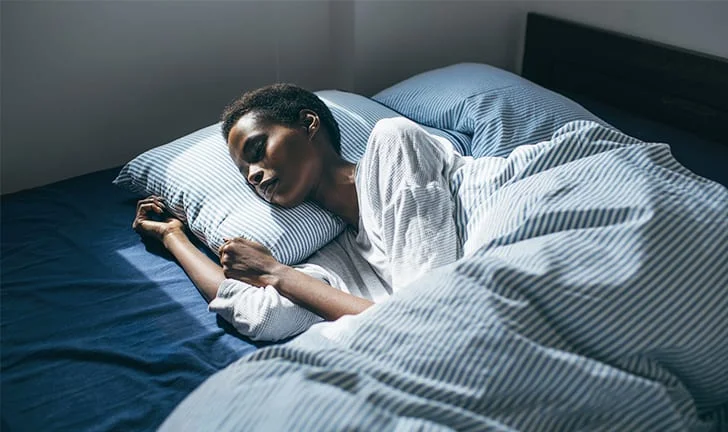Sleep is more than just rest, it’s a vital part of your health. Poor sleep patterns can impact your body in ways you might not expect, especially when it comes to weight gain and skin health.
Introduction
Although most people consider sleep to be a period of rest, it’s actually one of the busiest periods for your body’s healing and repair.
Your skin cells heal themselves, your hormones reset, and your brain solidifies memories as you sleep.
In addition to making you feel sleepy, getting too little sleep can have negative effects on your metabolism, hunger control, and skin tone.
The effects of inadequate sleep are evident on the inside as well as the outside, ranging from changes in weight to outbreaks of acne. Let’s examine seven ways that sleep impacts skin health and weight.
MUST READ:How to Recognize and Prevent Nutritional Deficiencies
1. Sleep Regulates Hunger Hormones
When you don’t get enough sleep, the balance between ghrelin (the hunger hormone) and leptin (the hormone that signals fullness) is thrown off.
Ghrelin increases, making you feel hungrier, while leptin decreases, reducing your ability to feel satisfied after meals.
This hormonal shift can lead to overeating, late-night snacking, and cravings for high-calorie foods, ultimately contributing to weight gain.
2. Poor Sleep Slows Your Metabolism
Your metabolism works best when your body is well-rested. Without adequate sleep, your resting metabolic rate, the number of calories you burn at rest begins to drop.
Over time, this can make it more difficult to maintain or lose weight, even if your diet hasn’t changed. In addition, poor sleep affects glucose metabolism, increasing the risk of insulin resistance and weight-related issues.
3. Sleep Influences Food Choices
When you’re tired, your brain seeks quick sources of energy, often in the form of sugar and refined carbs. This is why you’re more likely to reach for junk food after a sleepless night. Research shows that people who sleep less are more prone to unhealthy eating habits, which contribute to weight gain over time. This connection makes sleep a crucial factor in maintaining a balanced, nutritious diet.
4. Poor Sleep Leads to Increased Stress Hormones
Cortisol, the body’s main stress hormone, rises when you don’t get enough sleep. Elevated cortisol promotes fat storage, especially around the abdomen, making weight management more difficult.
At the same time, excess cortisol triggers inflammation, which can worsen skin conditions like acne, eczema, and psoriasis. It also breaks down collagen, the protein responsible for keeping your skin firm and youthful.
5. Sleep Boosts Skin Cell Repair
While you sleep, blood flow to the skin increases, delivering oxygen and nutrients essential for repair. Collagen production also peaks during deep sleep, helping reduce fine lines and improve skin elasticity.
Without adequate rest, this repair cycle is interrupted, leading to dull, tired-looking skin, slower healing from blemishes, and premature signs of aging.
6. Lack of Sleep Affects Hydration and Skin Barrier Function
When you don’t get enough sleep, your skin’s barrier function weakens. This protective barrier is responsible for locking in moisture and keeping out irritants.
A weakened barrier leads to dryness, uneven texture, and increased sensitivity. This is why people who are sleep-deprived often notice flaky skin, under-eye bags, and puffiness.
7. Sleep Quality Reflects in Your Complexion
Adequate rest improves circulation, giving your skin a healthy, radiant appearance. In contrast, lack of sleep reduces blood flow to the skin, making you look pale, dull, and fatigued.
Over time, chronic sleep deprivation not only affects skin tone but also increases the appearance of fine lines, dark circles, and puffiness under the eyes.
Final Thoughts
Sleep is one of the most overlooked beauty and wellness tools. By prioritizing quality rest, you support not only a healthy weight but also glowing, resilient skin.
If you’re struggling with poor sleep, consider setting a consistent bedtime, reducing screen time before bed, and creating a calming nighttime routine.


